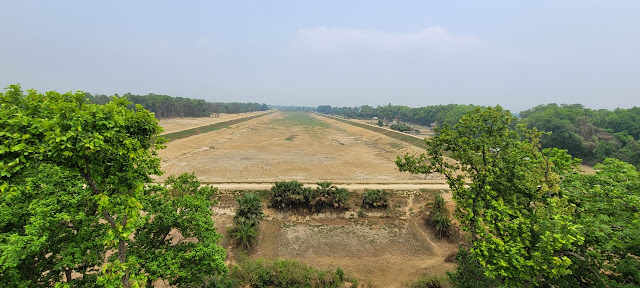Neonatal deaths rise at RMCH
National
Neonatal deaths rise at RMCH
138 babies die in three months
As many as 238 babies and children died at Rajshahi Medical College Hospital (RMCH) in three months till March.
Of them, 30 died of low birth weight, 107 of birth Asphyxia and 101 from other diseases. They were aged up to 30 days.
Hospital records show diseases like birth Asphyxia, pre-maturity and low birth weight, malnutrition, pneumonia, neonatal tetanus, typhoid, convulsion, organo phosphorous compound poisoning, protein energy malnutrition, septicemia, pulmonary TB, pericardial effusion, diarrhoea, hepatitis, encephalitis, meningitis, jaundice, bleeding per rectum, anemia, multi-gravita, and various infectious diseases were causes of the deaths.
More than 54 per cent of the babies died from birth asphyxia, followed by low birth weight.
But RMCH authorities did almost nothing to check the neonatal deaths. Even, it is lacking essential equipment to provide proper treatment.
The authorities are yet to take any steps to create more facilities. There is no separate ward at the hospital for critical patients.
Dr M Belal Uddin of pediatrics department at RMCH however pointed out lack of awareness among mothers and regular check up, patients' late coming to hospital and early conceiving as some other important reasons for death of babies.
"Babies are deprived of nutrition in anti-natal stage and sometimes do not get breast feed due to malnutrition of mothers. Patients do not come to hospital until they are forced, mainly due to poverty and lack of awareness", he said.
Dr Tahmidur Rahman, another pediatrics physician at RMCH said, "RMCH is a tertiary hospital in the region. Patients usually come here at the last moment, which requires good facilities that are lacking undoubtedly".
Prof Dr A B Siddiqui, chairman of pediatric department, said there is no shortage of skilled manpower at three units of pediatric wards (ward no. 10, 24 and 27) at RMCH.
But other than a few oxygen cylinders and suction machine, none of the equipment is available at the hospital, making it difficult for doctors to cope with a heavy rush of new born babies, they said.
Besides problems of safe water and electricity, there is shortage of beds at the two pediatric wards which accommodate patients three times their capacity.
Of them, 30 died of low birth weight, 107 of birth Asphyxia and 101 from other diseases. They were aged up to 30 days.
Hospital records show diseases like birth Asphyxia, pre-maturity and low birth weight, malnutrition, pneumonia, neonatal tetanus, typhoid, convulsion, organo phosphorous compound poisoning, protein energy malnutrition, septicemia, pulmonary TB, pericardial effusion, diarrhoea, hepatitis, encephalitis, meningitis, jaundice, bleeding per rectum, anemia, multi-gravita, and various infectious diseases were causes of the deaths.
More than 54 per cent of the babies died from birth asphyxia, followed by low birth weight.
But RMCH authorities did almost nothing to check the neonatal deaths. Even, it is lacking essential equipment to provide proper treatment.
The authorities are yet to take any steps to create more facilities. There is no separate ward at the hospital for critical patients.
Dr M Belal Uddin of pediatrics department at RMCH however pointed out lack of awareness among mothers and regular check up, patients' late coming to hospital and early conceiving as some other important reasons for death of babies.
"Babies are deprived of nutrition in anti-natal stage and sometimes do not get breast feed due to malnutrition of mothers. Patients do not come to hospital until they are forced, mainly due to poverty and lack of awareness", he said.
Dr Tahmidur Rahman, another pediatrics physician at RMCH said, "RMCH is a tertiary hospital in the region. Patients usually come here at the last moment, which requires good facilities that are lacking undoubtedly".
Prof Dr A B Siddiqui, chairman of pediatric department, said there is no shortage of skilled manpower at three units of pediatric wards (ward no. 10, 24 and 27) at RMCH.
But other than a few oxygen cylinders and suction machine, none of the equipment is available at the hospital, making it difficult for doctors to cope with a heavy rush of new born babies, they said.
Besides problems of safe water and electricity, there is shortage of beds at the two pediatric wards which accommodate patients three times their capacity.


Comments
Post a Comment